Risikoverlagerung in Finanzmärkten und nachhaltige Finanzierung
Erleichtern Finanzinstitute nachhaltige Finanzierungen? Diese Forschungsgruppe untersucht die Anreize der Kreditgeber zur Risikoverlagerung, ihre Entscheidungen bei der Unterstützung nachhaltiger Unternehmen und wie sich nachhaltige Finanz- und Rechtsinnovationen auf Unternehmen und Haushalte auswirken.
Forschungscluster
Finanzresilienz und RegulierungIhr Kontakt

- Abteilung Finanzmärkte
Referierte Publikationen

External Social Networks and Earnings Management
in: British Accounting Review, Nr. 2, 2022
Abstract
Using a sample of U.S. listed firms for the 2000–2017 period, we examine how external social networks of top executives and directors affect earnings management in their firms. We find that well-connected firms are more aggressive in managing earnings through both accruals and real activities and that the results are robust after controlling for internal executive social ties. Using a difference-in-differences approach, we find that earnings management decreases after a socially connected executive or director dies. Additional analysis shows that connections forged by past professional working experiences have a greater impact on earnings management than connections forged by education and other social activities. Moreover, CFO social networks have a greater influence on earnings management than CEO social networks. Finally, we explore the underlying mechanisms, finding that 1) firms that are socially connected to each other show more similarities in their earnings management than firms that do not share a connection, and 2) more connected firms are less likely to incur accounting restatements. Collectively, our findings indicate that the external social networks of top executives and directors are important determinants of both their accrual- and real activity-based earnings management.

Military Directors, Governance and Firm Behavior
in: Advances in Accounting, December 2021
Abstract
We build a large dataset of board of directors with military experience and document a substantial and persistent presence of independent military directors serving on corporate boards. We find that firms with independent military directors are associated with better monitoring outcomes, including less excessive CEO compensation, greater forced CEO turnover–performance sensitivity, and less earnings management.

Local Product Market Competition and Bank Loans
in: Journal of Corporate Finance, 2021
Abstract
We investigate the influences of local product market competition on the cost of private debt. Our evidence suggests that the cost of bank loans is significantly higher for firms headquartered in states with greater local product market competition measured by the Herfindahl-Hirschman Index for resident industries. To establish causality, we examine the recognition of the Inevitable Disclosure Doctrine and firm relocations to identify exogenous shocks to local product market competition. We find that the cost of bank loans is lower for firms facing less intense local product market competition after the adoption of IDD and higher for firms relocated to states with more competitive product markets. The results imply that banks value the characteristics of a firm's local product market when approving loan contracts.
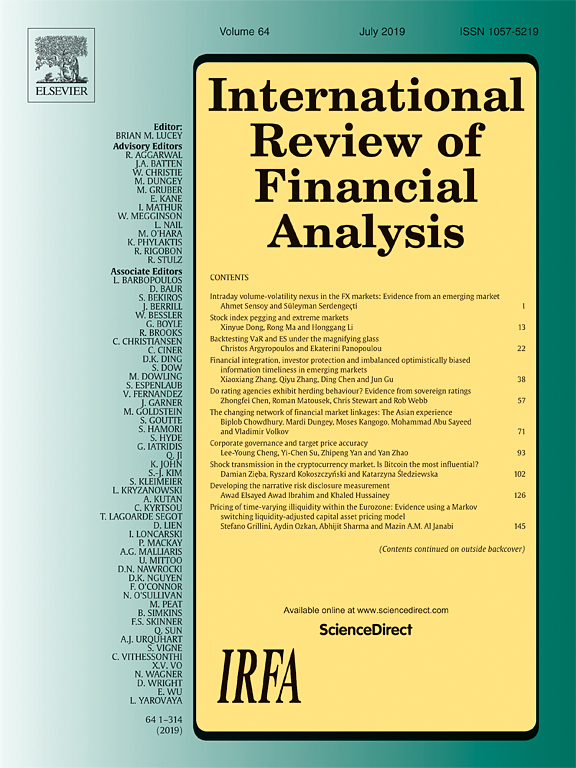
Global Equity Offerings and Access to Domestic Loan Market: U.S. Evidence
in: International Review of Financial Analysis, March 2021
Abstract
This study examines whether and to what extend global equity offerings at the IPO stage may affect issuing firms' ability to borrow in the domestic debt market. Tracking bank loans taken by U.S. IPO firms in the domestic syndicated loan market, we observe that global equity offering firms experience more favorable loan price than that offered to their domestic counterparts. This finding holds for a set of robustness tests of endogeneity issues. We also find that, compared with their domestic counterparts, global equity offering firms are less likely to have financial distress, engage more in international diversification, and are more likely to wait a longer time to apply for syndicated loans.
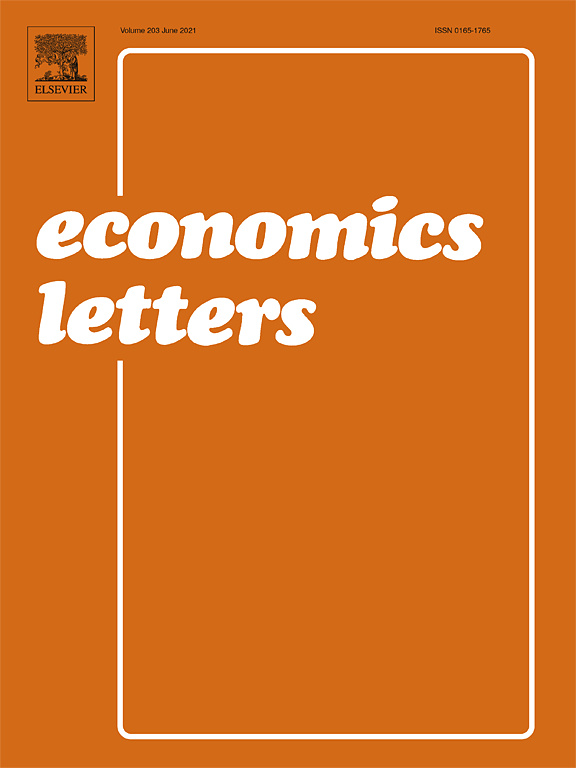
Income Inequality and Minority Labor Market Dynamics: Medium Term Effects from the Great Recession
in: Economics Letters, February 2021
Abstract
Using a difference-in-differences framework we evaluate the effect that exposure to a bank failure in the Great Recession period had on income inequality. We find that it led to a 1% higher Gini, relative rise of 38 cents for high earners, and 7% decline for lowest earners in treated MSAs. Moreover, we show that blacks saw a decline of 10.2%, Hispanics 9.8%, and whites 5.1% in income. Low income blacks and Hispanics drove much of the effect on inequality.
Arbeitspapiere
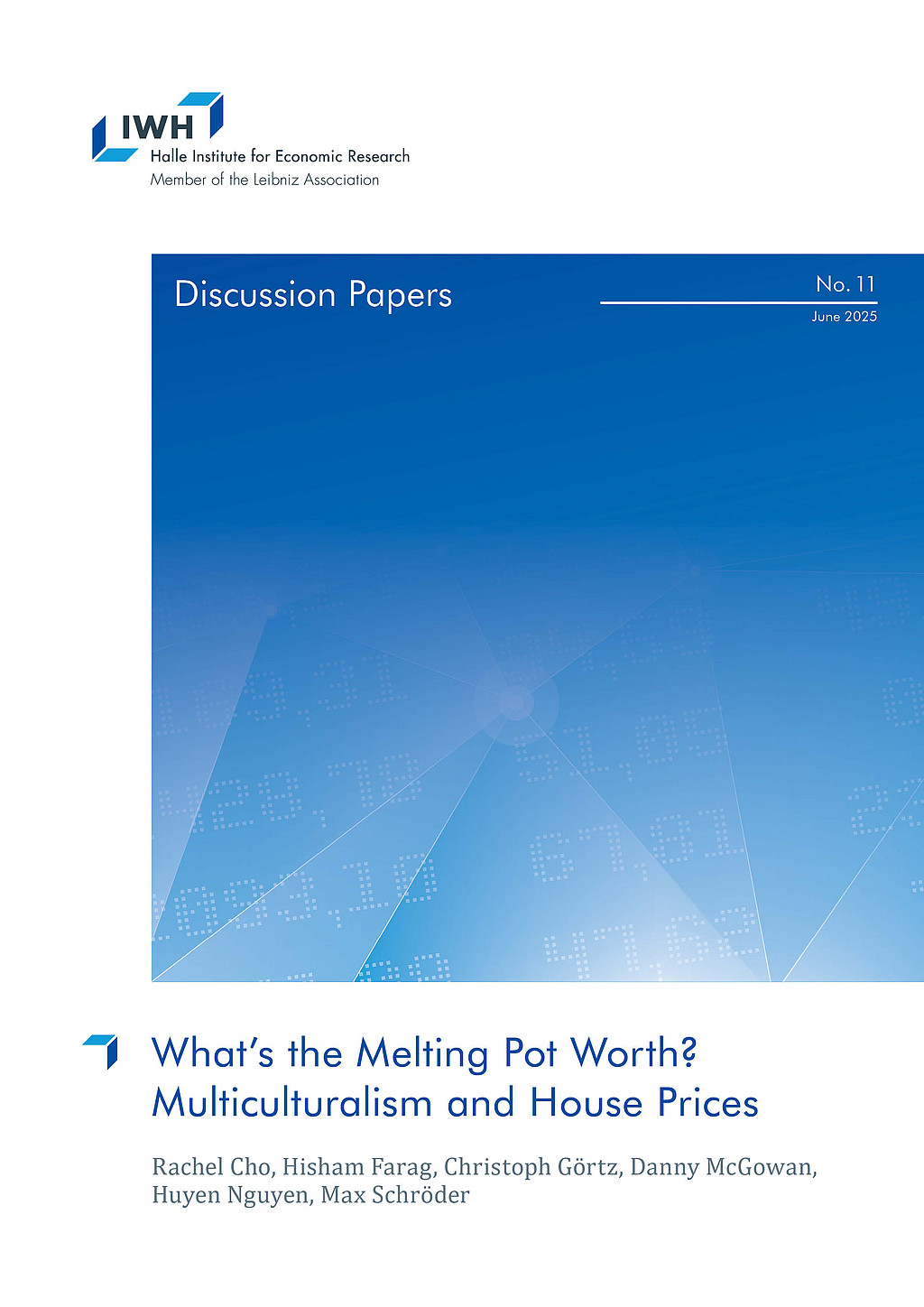
What’s the Melting Pot Worth? Multiculturalism and House Prices
in: IWH Discussion Papers, Nr. 11, 2025
Abstract
<p>Is there a multicultural neighborhood price premium? We exploit plausibly exogenous variation in British colonization patterns in Northern Ireland during the early 1600s which created neighborhoods of varying religious composition that persists until today. These religious groups are culturally distinct, but are observationally equivalent ethnically and socioeconomically. A standard deviation increase neighborhood-level multiculturalism raises house prices by 9.6%. Multiculturalism raises property prices by increasing asset liquidity and housing demand as a wider spectrum of society demand houses in these areas. The findings and mechanism contrast sharply with prior evidence showing negative relationships due to homophily, social networks, and identification challenges.</p>
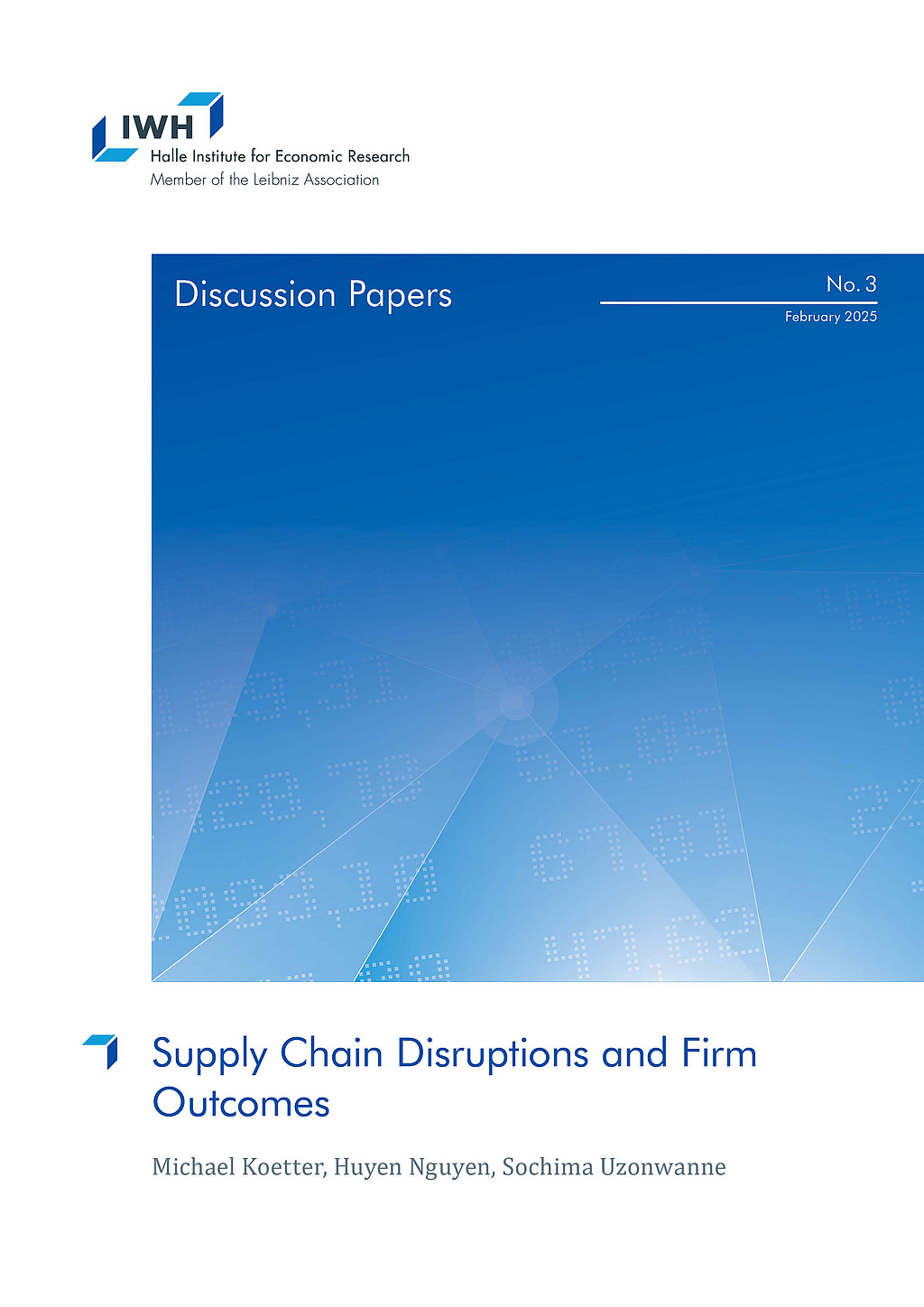
Supply Chain Disruptions and Firm Outcomes
in: IWH Discussion Papers, Nr. 3, 2025
Abstract
<p>This paper examines how firms’ exposure to supply chain disruptions (SCD) affects firm outcomes in the European Union (EU). Exploiting heterogeneous responses to workplace closures imposed by sourcing countries during the pandemic as a shock to SCD, we provide empirical evidence that firms in industries relying more heavily on foreign inputs experience a significant decline in sales compared to other firms. We document that external finance, particularly bank financing, plays a critical role in mitigating the effects of SCD. Furthermore, we highlight the unique importance of bank loans for small and solvent firms. Our findings also indicate that highly diversified firms and those sourcing inputs from less distant partners are less vulnerable to SCD.</p>
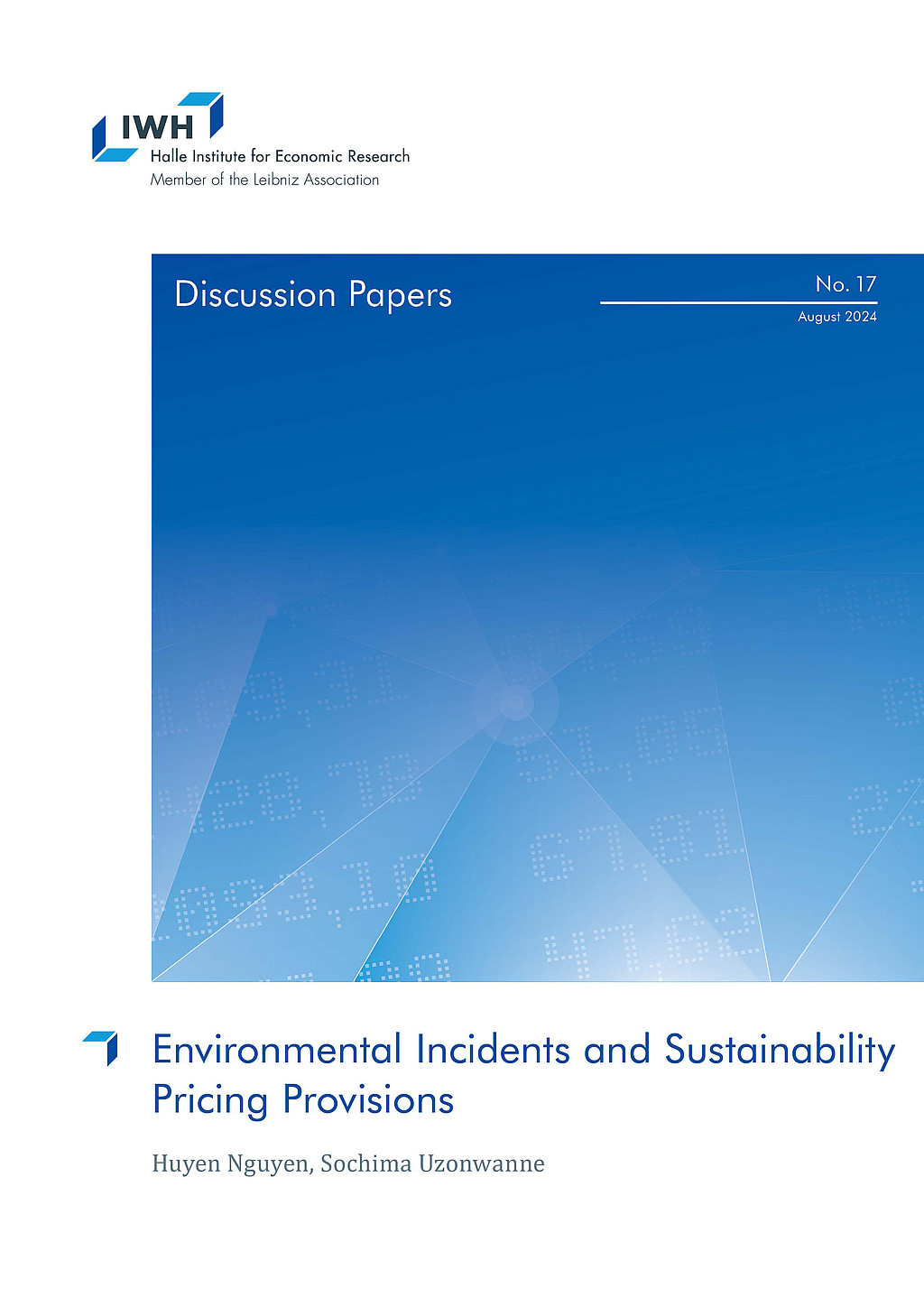
Environmental Incidents and Sustainability Pricing
in: IWH Discussion Papers, Nr. 17, 2024
Abstract
<p>We investigate whether lenders employ sustainability pricing provisions to manage borrowers’ environmental risk. Using unexpected negative environmental incidents of borrowers as exogenous shocks that reveal information on environmental risk, we find that lenders manage borrowers’ environmental risk by conventional tools such as imposing higher interest rates, utilizing financial and net worth covenants, showing reluctance to refinance, and demanding increased collateral. In contrast, the inclusion of sustainability pricing provisions in loan agreements for high environmental risk borrowers is reduced by 11 percentage points. Our study suggests that sustainability pricing provisions may not primarily serve as risk management tools but rather as instruments to attract demand from institutional investors and facilitate secondary market transactions.</p>
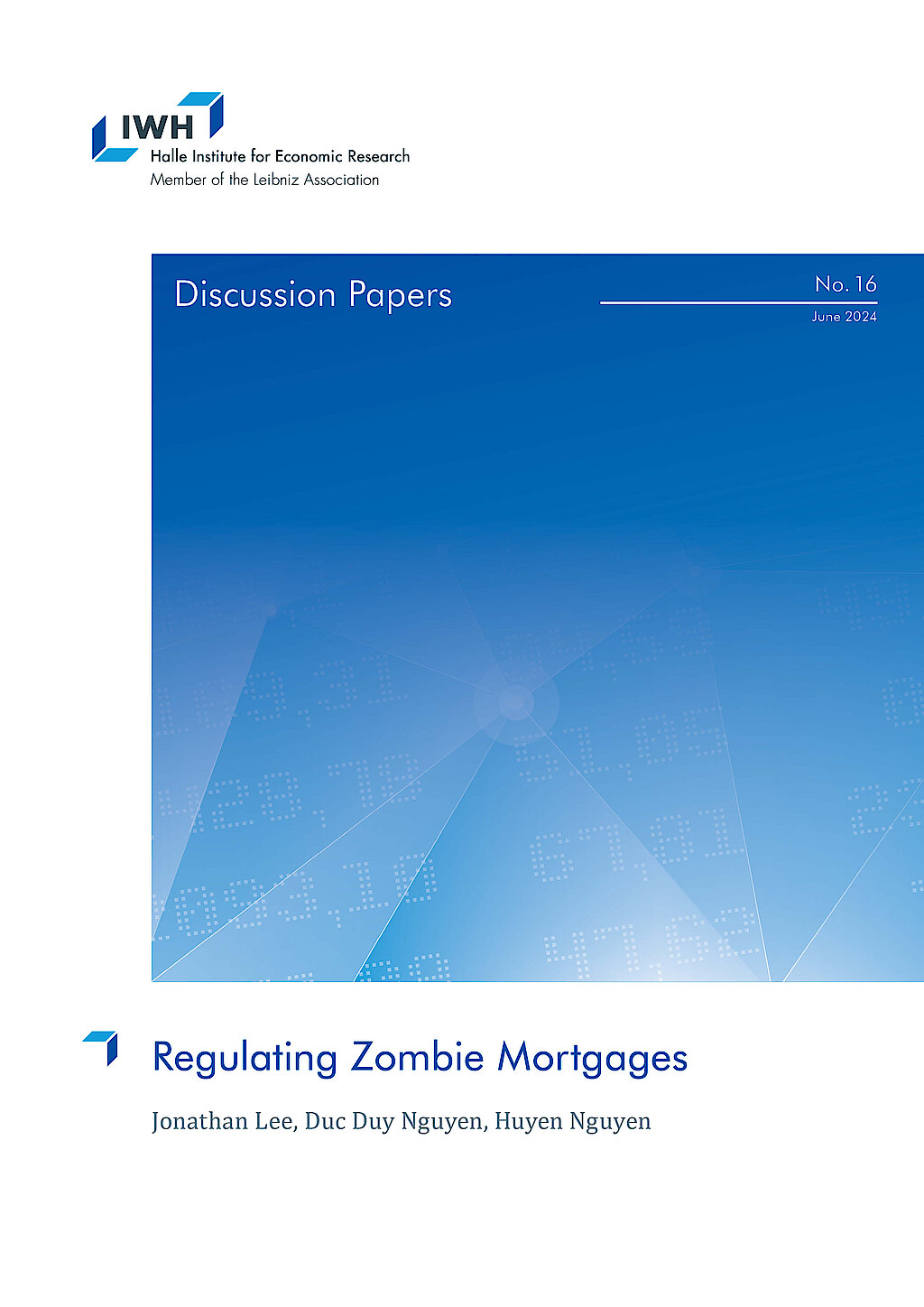
Regulating Zombie Mortgages
in: IWH Discussion Papers, Nr. 16, 2024
Abstract
Using the adoption of Zombie Property Law (ZL) across several US states, we show that increased lender accountability in the foreclosure process affects mortgage lending decisions and standards. Difference-in-differences estimations using a state border design show that ZL incentivizes lenders to screen mortgage applications more carefully: they deny more applications and impose higher interest rates on originated loans, especially risky loans. In turn, these loans exhibit higher ex-post performance. ZL also affects lender behavior after borrowers become distressed, causing them to strategically keep delinquent mortgages alive. Our findings inform the debate on policy responses to foreclosure crises.
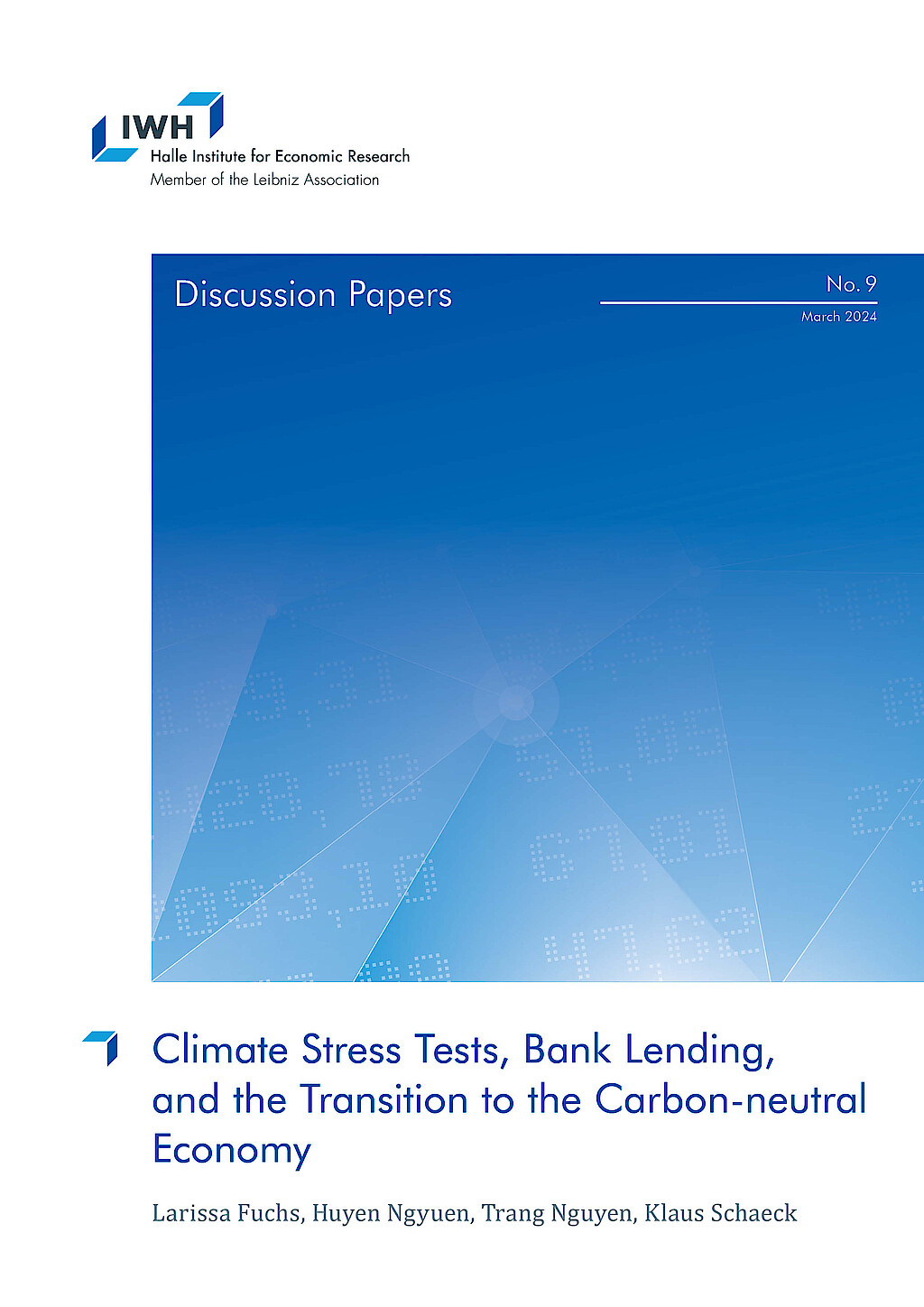
Climate Stress Tests, Bank Lending, and the Transition to the Carbon-neutral Economy
in: IWH Discussion Papers, Nr. 9, 2024
Abstract
We ask if bank supervisors’ efforts to combat climate change affect banks’ lending and their borrowers’ transition to the carbon-neutral economy. Combining information from the French supervisory agency’s climate pilot exercise with borrowers’ emission data, we first show that banks that participate in the exercise increase lending to high-carbon emitters but simultaneously charge higher interest rates. Second, participating banks collect new information about climate risks, and boost lending for green purposes. Third, receiving credit from a participating bank facilitates borrowers’ efforts to improve environmental performance. Our findings establish a hitherto undocumented link between banking supervision and the transition to net-zero.





